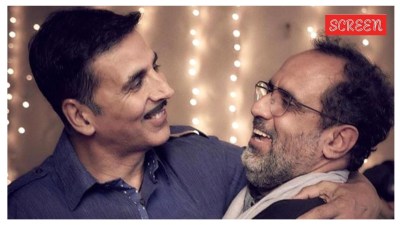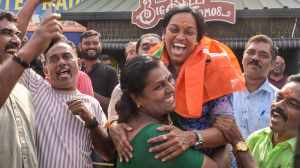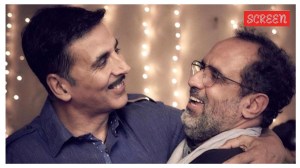Can a child obtain an OBC certificate from their mother? Supreme Court to decide
The Supreme Court will hear a plea on July 22 regarding guidelines on obtaining OBC certificates for a child of a single mother from the same category.
 According to the existing guidelines, a copy of an OBC certificate from the father or blood relatives on the paternal side should be attached to the application form. This, she said, violates her child’s right to equality and personal liberty under Articles 14 and 21, respectively.
According to the existing guidelines, a copy of an OBC certificate from the father or blood relatives on the paternal side should be attached to the application form. This, she said, violates her child’s right to equality and personal liberty under Articles 14 and 21, respectively. The Supreme Court on June 23 flagged the lack of guidelines on issuing Other Backward Class (OBC) certificates to the children of single mothers, and listed the matter for hearing on July 22.
A division bench of Justices KV Viswanathan and N Kotiswar Singh was hearing a plea by a single mother holding an OBC certificate seeking the issuance of an OBC certificate to her child based on her own status. The plea requested amending the current guidelines, which give primacy to patrilineal lineage on caste certification. The case raises questions on gender equality under Article 14.
Here is what to know.
What is the case about?
The petitioner, a single mother with OBC status, approached the apex court on June 23 to challenge the existing guidelines of the Delhi Revenue Department regarding the issuance of an OBC certificate for her child. She argued that as a single mother belonging to the OBC community, the guidelines must allow her child to inherit her caste.
According to the existing guidelines, a copy of an OBC certificate from the father or blood relatives on the paternal side should be attached to the application form. This, she said, violates her child’s right to equality and personal liberty under Articles 14 and 21, respectively.
Additional Solicitor General SD Sanjay, appearing for the Ministry of Social Justice and Empowerment, informed the Court that reference for the guidelines can be taken from the 2012 Supreme Court judgment in Rameshbhai Dabhai Naika vs. State of Gujarat. This case pertained to the caste status of children born from inter-caste marriages, specifically between SC/ST/tribal and non SC/ST partners.
The Supreme Court had then held that while each situation varies and must be assessed based on its facts, as a general principle, a woman who marries a man of a different caste can not take on the caste of her husband; however, a child who is born from such an inter-caste marriage typically inherits the caste of the father.
The Court said that, “In an inter-caste marriage or a marriage between a tribal and a non-tribal, there may be a presumption that the child has the caste of the father. This presumption may be stronger in the case where, in the inter-caste marriage or a marriage between a tribal and a non-tribal, the husband belongs to a forward caste. But by no means the presumption is conclusive or irrebuttable, and it is open to the child of such marriage to lead evidence to show that he/she was brought up by the mother who belonged to the scheduled caste/scheduled tribe.”
The exception to this is that if a couple separates or divorces, and the child is raised by a mother belonging to the Scheduled Caste or Scheduled Tribe, the child may then assume her caste, provided that she is the sole caregiver.
How have the courts ruled on this issue?
Different courts have considered the paternal lineage rule currently in place, and sought evidence meriting an improvement in the child’s wellbeing from being supplied an OBC certificate.
In Rumy Chowdhury v. The Department of Revenue, Government of NCT Delhi (2019), a Single Judge of the Delhi High Court heard challenges to the Delhi Government’s guidelines. The petitioner was an Indian Air Force officer belonging to the Scheduled Caste community, and married to her husband, who was from the forward caste. She had raised her two sons as a single mother; therefore, she claimed that they are entitled to a certificate certifying that they belong to the same community to which she belongs. The Executive Magistrate rejected her request for a caste certificate. The High Court upheld this order of the Magistrate.
This decision was appealed in 2020, wherein the division bench of the Delhi High Court determined that for children to inherit the mother’s caste, they have to produce cogent evidence of being subjected to deprivation and disadvantages. The mother could provide a decent life to her kids, the court held that “issuance of a caste certificate to the appellant’s children would result in depriving a genuine schedule caste person of an opportunity to claim entitlement to the limited number of schedule caste seats reserved in higher education and in service, thereby causing a setback to the equality goal enshrined in the Constitution.”
In Smti. Moonsoon Barkakoti v. The State Of Assam (2024), the Gauhati High Court was hearing a case about the validity of a Junior Grade officer’s OBC certificate which she had inherited from her mother, despite her father belonging to the general category. The court upheld the enquiry report that verified that the officer was raised in her mother’s community, and consequently suffered from disadvantages while growing up. The court reaffirmed that caste identity in inter-caste scenarios depends on actual lived experience and community integration, not just paternal lineage.
- 01
- 02
- 03
- 04
- 05






































